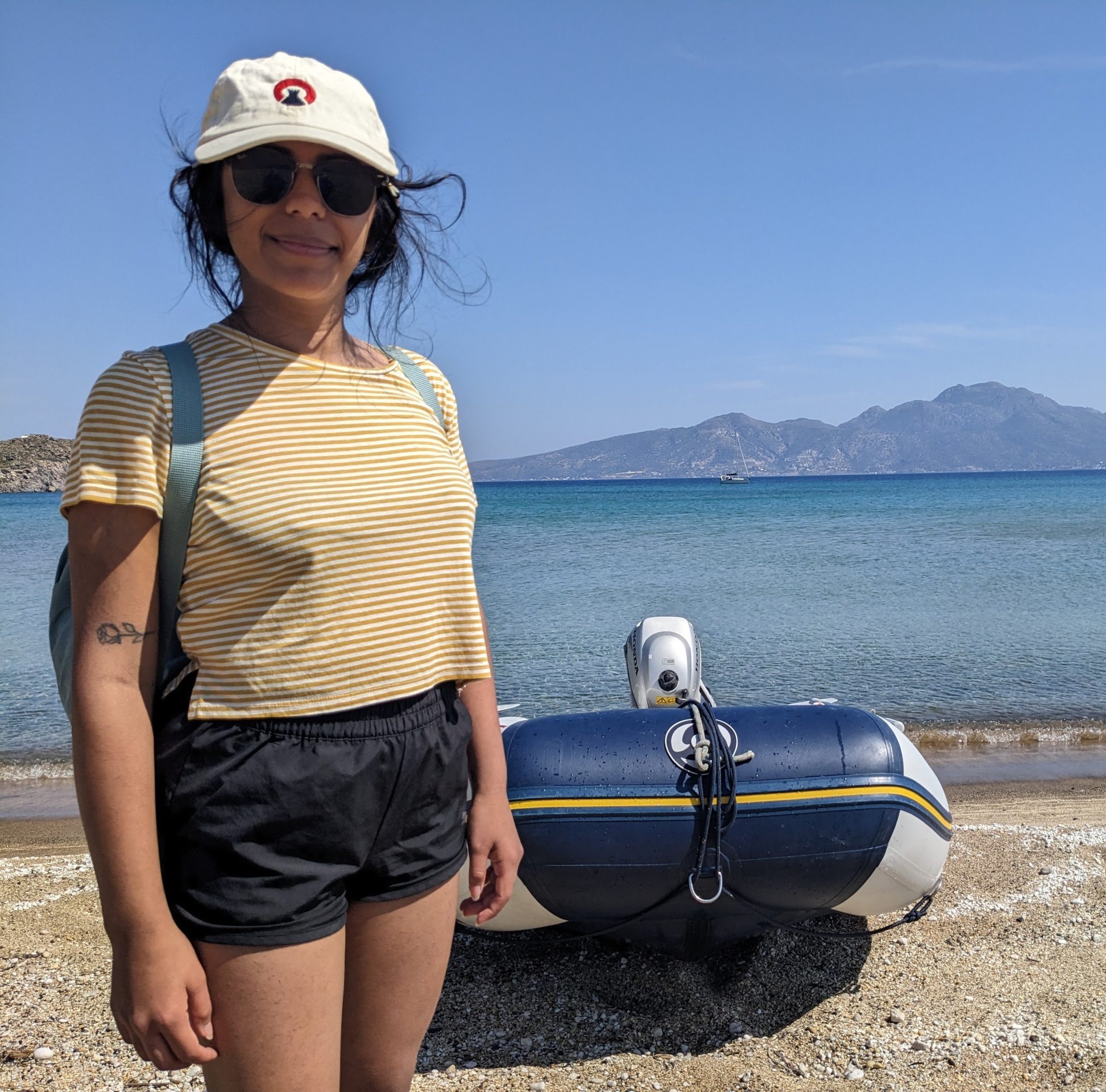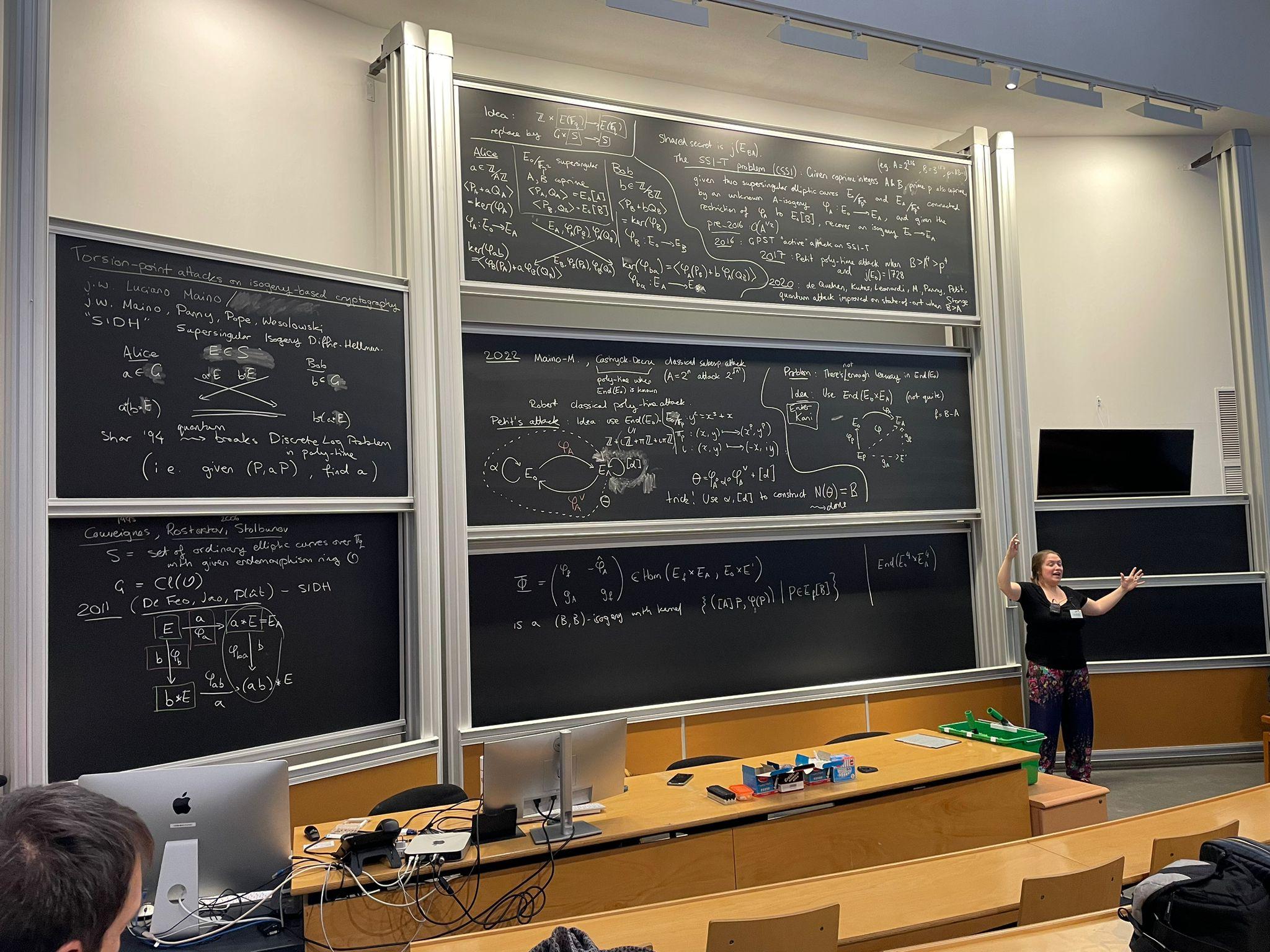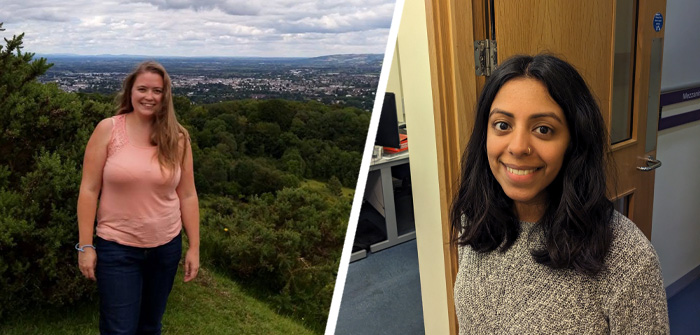Safety in Engineering: As told by our academics
On International Women in Engineering Day, learn how lecturers Neha Chandarana and Chloe Martindale are prioritising safety through their work and research.
Neha Chandarana, Lecturer and EDI Champion
Q: Let’s start by getting to know you.
A: My name is Neha Chandarana, a lecturer in bio-based and sustainable composites, working within the Bristol Composites Institute. I am also the equity, diversity, and inclusion (EDI) champion for the Faculty of Engineering.
Q: How are you prioritising safety through your research and work more generally?
A: My research interests are in the areas of sustainability, renewable energy, and structural health monitoring. Each of these aligns with a general sense of safety, whether it is to do with the planet or with the safety and reliability of composite materials and structures.

I have a lot of experience in using sensors to assess the health state of composites, for example by ‘listening’ to the emissions resulting from the initiation and growth of damage. Improving the reliability of materials, such as in aircraft, wind turbines, and marine structures will facilitate the development of more efficient designs while reducing the inherently damaging environmental impact of high-performance composites that make use of petroleum-derived carbon fibre and epoxy resins.
Safety is also important in my EDI champion role, where I engage with individuals in our faculty and also in central university teams, to understand and deliver improvements in equitable practices and the sense of belonging among our students and staff.
Q: What initiatives have you worked on that you are most proud of?
A: In all aspects of my work, I try to consider the needs of minoritised individuals to support them to achieve their goals. For example, in my first year as EDI champion, I have contributed to the development of our Faculty EDI commitment statement, worked with colleagues to develop guidance for recruitment in engineering, and led the Ca-pow project, which has received funding from the Royal Academy of Engineering. This project involves us getting an understanding of the educational experiences of intersectional engineering students at the undergraduate level and developing interventions through three different workstreams.
Q: When did you first discover that you were interested in Engineering?
A: It might surprise you to know this but I’m not actually an engineer! I have always been interested in maths and science, particularly where it is possible to work on curiosity-driven projects that also have a big-picture goal. I studied textile technology at university and went on to pursue a PhD in composite materials after that, both at the University of Manchester. Working in a university has allowed me to continue my research into these topics, as well as giving me the opportunity to support students to thrive in their education.
Q: Why did you decide to pursue teaching?
Since I was at school, I’ve always taken part in activities where I engage with pupils/students in the lower years, as well as taking part in outreach and public engagement activities. I really enjoy the curiosity and discussions that come from working with students, so it was really a natural fit for me to take up a lectureship.
Q: What are your hopes for the future of Engineering?
As part of Ca-pow, we are hoping to develop a better understanding of the intersectional educational experience and how this links to outcomes, while at faculty-level we are looking at the recruitment pipeline and staff happiness. My hope is that our community and culture will transform in a way that enables all students and staff in engineering to thrive, without leaving anyone behind.
Chloe Martindale, Lecturer and Widening Participation Co-Lead
Q: Tell us a little about yourself…

A: I’m Chloe, a Lecturer in the School of Computer Science, as well as the Widening Participation co-lead for the Faculty of Engineering. My research is in Cryptography, which mostly concerns the science of secure communication on the internet via encryption or decryption. I also sit on the crypto panel of experts for Crypto Forum Research Group (CFRG), which advises on open-source international standards for internet security. Outside of work, I play piano and sing, and am a mum of one!
Q: How are you prioritising safety through your work/research?
A: Most of my research is about developing and testing new algorithms that are secure against attacks by “quantum computers”. The development of quantum computers is still in its infancy, but in theory, a future quantum computer could, for example, break the encryption used to secure your bank account and your messaging in seconds. My research is about developing encryption algorithms that can be run on even very basic devices such as a smartcard that can’t be decrypted by anyone except for the intended user, even someone with access to a powerful quantum computer.
Q: What does safety in Engineering look like to you?
A: Engineering covers such a wide variety of topics, and I sit very much on the theoretical side, where engineering meets pure maths. The face of “safety in Engineering” that I encounter in my research and teaching is cybersecurity and data protection.
Q: What inspired you to take up a career in Engineering?
A: My path to the Faculty of Engineering stems from a lifelong passion for maths. There have been various inspirational figures in my academic journey, starting from my Year 1 primary school teacher.
The inspiration to move away from pure maths and into cryptography came from my postdoc mentor at TU Eindhoven in the Netherlands, who once told me in an interview “If you come here, you will become a cryptographer” – and she was right!
I was inspired by cryptography having learnt more about the terrifying reality of mass surveillance, the lack of privacy afforded to average citizens, and the consequences of that.
Q: What advice or encouragement would you give to women who are considering a move into Engineering?
A: Look out for red flags in company policies. For example, consider their parental leave policy and whether they given any thought to their EDI statement.
If, during your career, you still find yourself in an environment that is not helping you – for me, it means time to move on!


